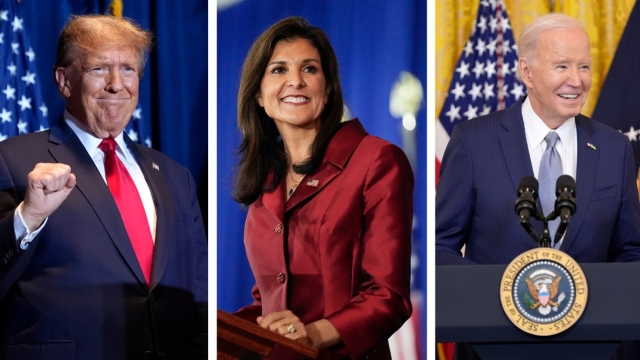The South Carolina Republican primary is over, and there was no real surprise in the results. However, the Republican race for president still marches on. So, when will the Republican race for president be mathematically over?
By this time next month, it could be.
That's because to be the Republican nominee, you need 1,215 delegates. Only Iowa, New Hampshire, Nevada, the Virgin Islands, and South Carolina have now held contests.
So while it feels like former President Donald Trump is going to be the nominee, he isn't anywhere close to making it official. After this past weekend, he still needs over 1,100 delegates, but the calendar is about to get very busy very quickly.
Michigan's primaryon Tuesday will allocate 16 delegates, with an additional 39 delegates up for grabs during the district conventions on March 2.
Speaking of March 2, that's when Idaho will hold its caucus, where 32 delegates are at stake.
Washington, D.C., is set to host its primary on March 3, with 19 delegates at stake, while North Dakota will conduct a caucus on March 4, where 29 delegates will be allocated.
But the real prize, as it is every four years for the Republican candidates, is Super Tuesday.
All of these states—15 of them—will be holding primaries or caucuses on March 5, where 844 GOP delegates will be up for grabs. If the polls hold, that still wouldn't give former President Trump enough delegates to clinch, but he will be close.
In fact, the Trump campaign, in a memo to reporters, has circled March 12 as the date they think Trump will clinch the Republican nomination. That's the date Georgia, Washington, Mississippi and Hawaii hold contests.
Nikki Haley's campaign disputes that date, though, believing she will have some upsets soon. However, the reality is that many of the rules have changed in recent years to benefit former President Trump.
For instance, California has revised its rules so that all 169 delegates are awarded to the candidate who secures more than 50% of the vote, whereas previously, the second-place contender would have been assured some delegates.
As far as President Joe Biden, who isn't facing a competitive primary, could wrap this up by the end of March, officially beginning the general election campaign.
SEE MORE: How Trump won in South Carolina and what it could mean for November
Trending stories at Scrippsnews.com



